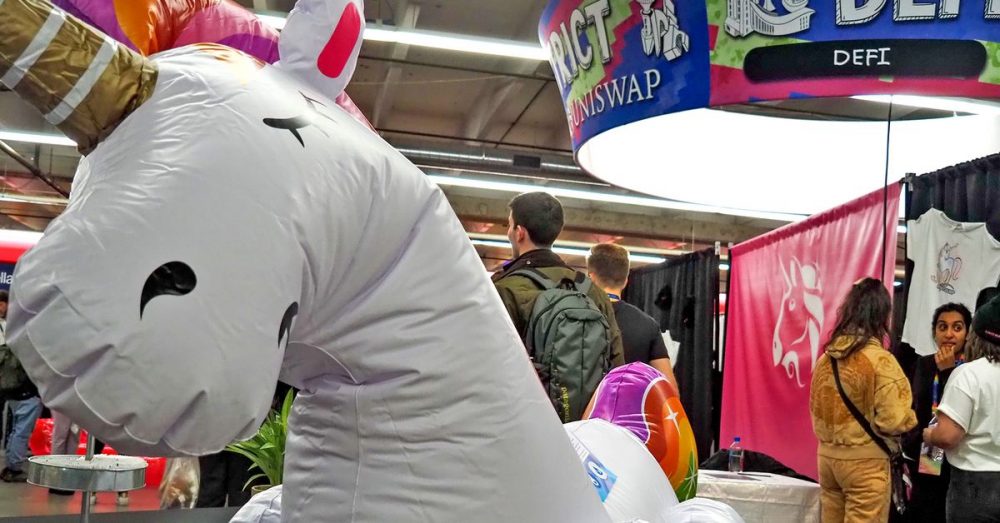Uniswap Labs, the team behind the decentralized finance (DeFi) juggernaut Uniswap, announced its vision for the next iteration of its crypto exchange platform: Uniswap v4.
For the first time ever, Uniswap Labs is inviting community feedback on Uniswap v4 before its public launch. This strategy, focused on community input, is meant to underscore Uniswap’s dedication to decentralization. It is a key difference meant to separate the decentralized exchange (DEX) from centralized exchanges (CEX), such as Coinbase (COIN) and Binance, which are currently facing lawsuits from the U.S. Securities and Exchange Commission (SEC).
Uniswap is generally credited for popularizing automated market makers (AMM), a type of blockchain-based computer program, or “smart contract,” that facilitates trades between cryptocurrencies without the use of intermediaries.
Uniswap v3, the platform’s latest version, debuted in 2021 on the Ethereum blockchain and has since expanded to multiple additional networks. As of now, Uniswap v3 is the largest decentralized exchange by trading volume, having processed over $1 trillion in transactions since its inception, according to DefiLlama.
With the v4 upgrade, the developer plans to expand on the DEX’s coin-swapping capabilities with the introduction of “hooks” and custom liquidity pools. In a blog post published on Tuesday, Uniswap Labs CEO Hayden Adams described hooks as “plugins to customize how pools, swaps, fees, and LP positions interact.”
According to Adams, the new functionality could pave the way for things like on-chain limit orders and dynamic fees – features that might be available on more traditional exchange platforms but are harder to implement in a blockchain setting, where there are no intermediaries or centralized order books.
Adams also indicated that the draft code for Uniswap v4 will introduce performance improvements and fee reductions. Uniswap is permissionless, meaning anyone can create “pools” to facilitate the buying and selling of compatible crypto tokens. Under the v4 proposal, Adams says the network gas fees required to list new pools will be sliced by 99%.
The proposed licensing model for Uniswap v4 is the Business Source License 1.1, the same license used by Uniswap v3. This license delays competitors from using Uniswap’s codebase to create their own applications as several popular DEX use slightly modified versions of Uniswap’s codebase to power their systems.
Uniswap Labs, which secured a $165 million Series B last year, is releasing its proposed Uniswap v4 plans to garner public feedback. According to Adams, it could be several months before Uniswap v4 launches to the public.
“It’s really here as an initial implementation of this protocol and a vision for what it will be, but it’s not finished,” Adams told CoinDesk. “There’s time for people to give feedback, time for people to find improvements and optimizations, time for people to also start preparing to build on top of it.”
Step towards increased decentralization
The move to gather community feedback is a step to adopt a more “decentralized” development model, and it is timed just as U.S. regulators are increasing scrutiny of Uniswap’s centralized competitors.
The SEC recently filed lawsuits against Coinbase and Binance, two of the leading centralized crypto exchanges. These platforms offer many of the same features as Uniswap, but process trades on traditional computer servers rather than decentralized blockchains.
It’s unclear whether (or how) similar enforcement actions could target DEXs like Uniswap, which theoretically lacks a centralized command structure or operating entity.
However, the SEC previously signaled its intention to increase oversight of the DeFi ecosystem. Notably, assets deemed securities by the SEC in its recent CEX lawsuits can currently be traded on Uniswap, and the platform was the subject of a 2021 SEC probe according to a Wall Street Journal report.







